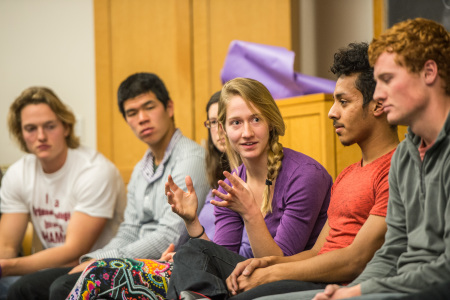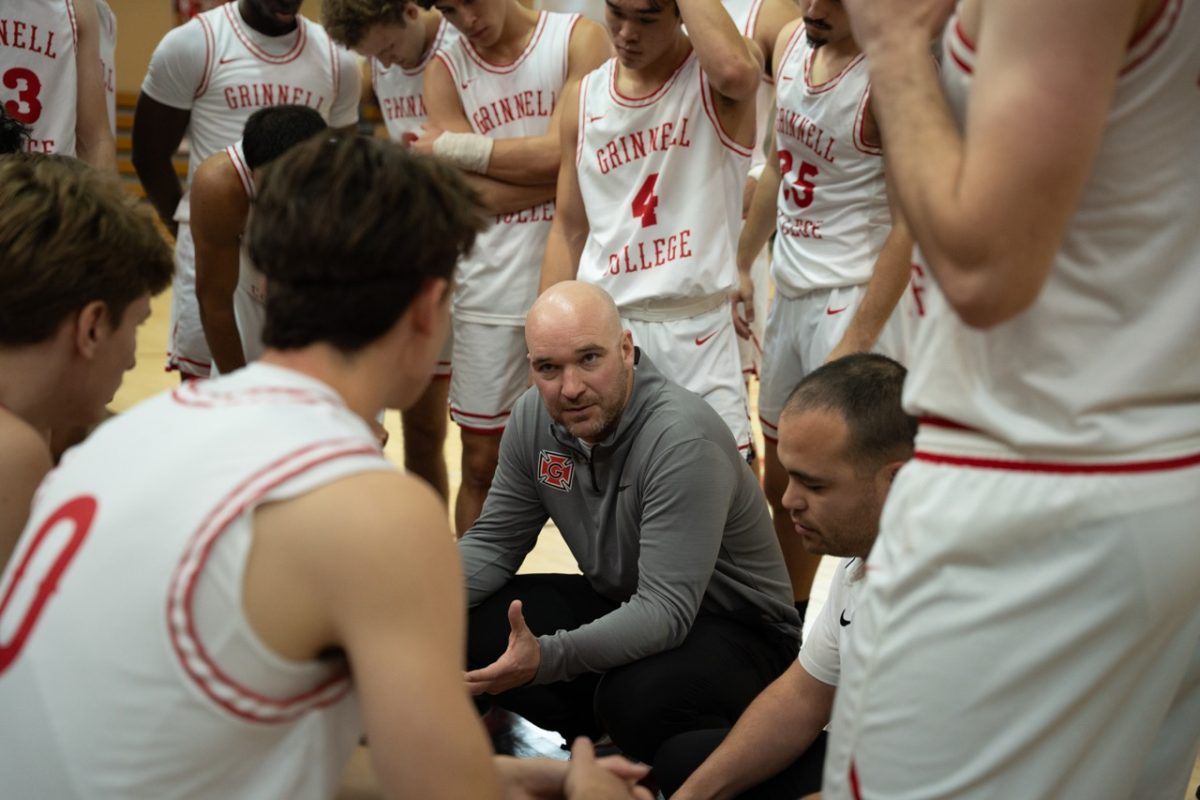The Pioneer Diversity Council (PDC) hosted a Diversity Dialogue last night in a packed room in ARH 302. The purposes of the event were to bridge gaps between athletes and non-athletes and unify the campus. Although the event was designed to address various issues in a Q&A session with a panel that consisted of students, student-athletes, coaches and professors, the event took shape in a mostly unstructured dialogue.
“We envisioned this talk as a way for different groups on campus to discuss perceptions and stereotypes that were built up around different groups and talk about ways to break them down, in an attempt to make the campus a more inclusive and more supportive environment,” said Alysia Horcher ’15, vice president of PDC.
Throughout the week, the PDC advertised the event, postering and tabling outside of the dining hall. The PDC collected questions and comments prior to the event regarding issues on the student and non-student divide to address at the event.

According to Justin Thaxton, Coordinator for Diversity and Inclusion in Athletics, although the event was open to all members of the community, most of the attendees were athletes or those involved with athletics, which marked a concern.
“I don’t think we had enough non-athletes here,” he said. “I think it’s important for everybody’s voice to be heard. But a piece of your voice being heard is that you have to be present. I want to have a more complete discussion, but we need everybody to be present.”
Horcher agreed with Thaxton’s thought.
“We know that we can’t have a productive conversation without having all the different groups here,” Horcher said. “It was a one-sided conversation. It was more like athletes saying this is what we feel and then there wasn’t the other side to respond to it.”
According to Jordan Taitel ’15, a non-athlete attendee, partnering with other student groups could have improved the talk.
“I think there wasn’t enough non-athlete participation, which was partially the construction of the talk and partially non-athletes not showing up,” she said. “I think co-hosting events like this with other groups that aren’t just for athletes or that aren’t perceived as just for athletes on campus and making it more diverse representation of the students on panel or in general would be good.”
The event began with asking the question of why there is a bad stigma among athletes. After clarifying the definition of stigma, the conversation focused on many areas such as stereotypes of athletes, sense of belonging and steps to bridge any gap between athletes and non-athletes.
“This thought that perhaps New Student Orientation needs to be changed [stood out],” Thaxton said. “I do think that there are some parts of NSO that makes boxes for students. We have all these different places where kids come in and go to but should we really be breaking them apart like that or should we allow them to find their own?”
According to Horcher, even though the event did not go in the direction she thought it would, the talk provided a stage for people to speak their minds.
Looking forward, the PDC hopes to include more student groups to participate in talks like last night’s.
“We really want to emphasize that PDC is not an athletic committee,” Horcher said. “Pioneer Diversity Council is a council of students that want to address different issues of diversity. We really want people to start coming to our meetings and we want to get these things talked about more than once a semester. If we can get people to come to our meetings, we can get more events. I think that’s what’s going to lead to change.”



















































